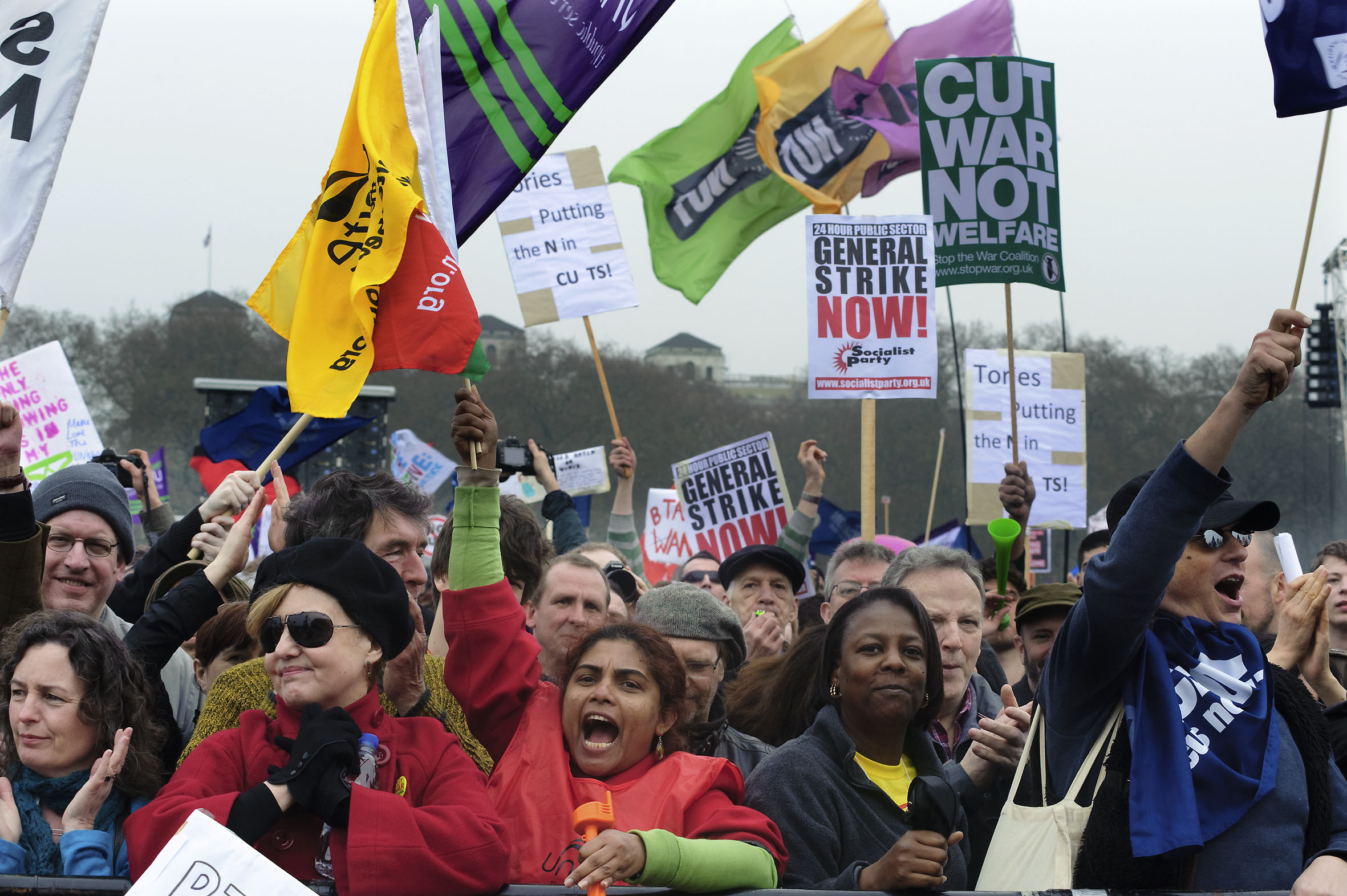The ‘Occupy’ movement has rapidly spread across the world. Support for it is huge. Why? Because of the growing understanding of the simple idea that we, the vast majority of humanity, are being forced to pay for a crisis that is not of our making while the rich get richer.
Occupy Wall Street websites feature pictures of ordinary Americans explaining what makes them part of the ‘99%’: they can’t pay their mortgage because of wage cuts; they can’t get a job; they can’t pay medical/education/care fees, and so on. These are experiences that people can identify with in many countries as governments plan further years of austerity and cuts.
There is a growing comprehension that, while we not ‘all in it together’ with the billionaires or the capitalist politicians who make the cuts, there is a common experience among working class and poor people across the world.
This movement has made explicit that it is the majority of people – ‘the 99%’ – who are suffering. And it has helped to expose what’s happening at the top. While we worry about the price of petrol, food and housing, the number of billionaires worldwide went up by around 20% over the last year.
The idea is increasingly understood that capitalism ‘is crisis’; is brutal inequality, is poverty and growing impoverishment for the majority. Modern capitalism has created the potential for living standards beyond the wildest dreams of our grandparents and great-grandparents.
But today young people on the Jarrow to London March for Jobs have had to retread the footsteps of their great-grandparents in the 1930s to once again challenge unemployment and to demand a decent future.
In these protest movements questions are posed. Why does it have to be like this? Why is there £60 billion lying idle in the bank accounts of big business while workers cannot find employment? Why are there bricks and mortar piled up, construction workers on the dole and five million requiring decent housing?
Socialists explain that those protesters who condemn capitalism are right. Capitalism is based on production for profit and not for social need. Not only are the majority exploited by the 1%, we create their wealth. It is as a class system that capitalism is best explained, with a capitalist class that privately owns and controls most production and wealth, and derives its profits from the exploitation of the majority – the working class. Most working class and middle class people, on the other hand, rely on weekly or monthly wages – that are being squeezed – and have relatively little or no accumulated wealth.
Nice capitalists?
It is not a question of merely convincing the capitalists to behave more fairly. The collection of unpaid and avoided taxes by the rich would more or less make the cuts unnecessary. Yet they spend huge sums on legal and financial advice to avoid paying taxes, whatever attempts are made to persuade them to pay.
The banks were bailed out at the expense of working class people and the bankers largely kept their bonuses. Big business pours millions of pounds into lobbying companies to make sure politicians do their bidding.
The capitalists are motivated by the drive to maximize their profits. Capitalism is a blind and chaotic system that cannot be run in the interests of the majority on the planet. And yet we are told there is ‘no alternative.’
Socialists believe that within capitalism are the seeds of a new way of running society. The enormous wealth that is in the hands of the ruling classes could be used to meet the needs of the billions on the planet but to do so requires taking their main assets, and their means of creating more wealth, out of their hands, into public ownership, and planning how to use it under democratic working class control and management.
As an example, imagine if the banks that were nationalised had been genuinely nationalised – to be run democratically in the interests of the overwhelming majority now – not a handful of billionaires. Young people could get access to cheap mortgages, small businesses could get credit and could take people on.
Imagine if the economy was run so that the work could be shared out with no loss of pay to eliminate the suffering of unemployment; and mass public, environmentally sustainable works could create jobs as well as provide homes, services and develop infrastructure.
Socialists argue that such an alternative is possible but it requires mass organised working class action. As the creators of wealth, workers, when they are organised and have a determined leadership, have enormous potential power. In Egypt it was when the workers joined the action that Mubarak was forced to go.
On 26 March and 30 June this year the working class in Britain showed a glimpse of its huge strength. It has the potential to make the cuts unworkable and to challenge the power of the government.
We also need a political voice, our own mass workers’ party that is part and parcel of the struggle against all cuts, that can give it a clear direction, and be a place where discussion and debate about the alternative to a system of crisis can take place.
If you agree with us, if you like the ideas and reports in the Socialist, then join the Socialist Party today.









